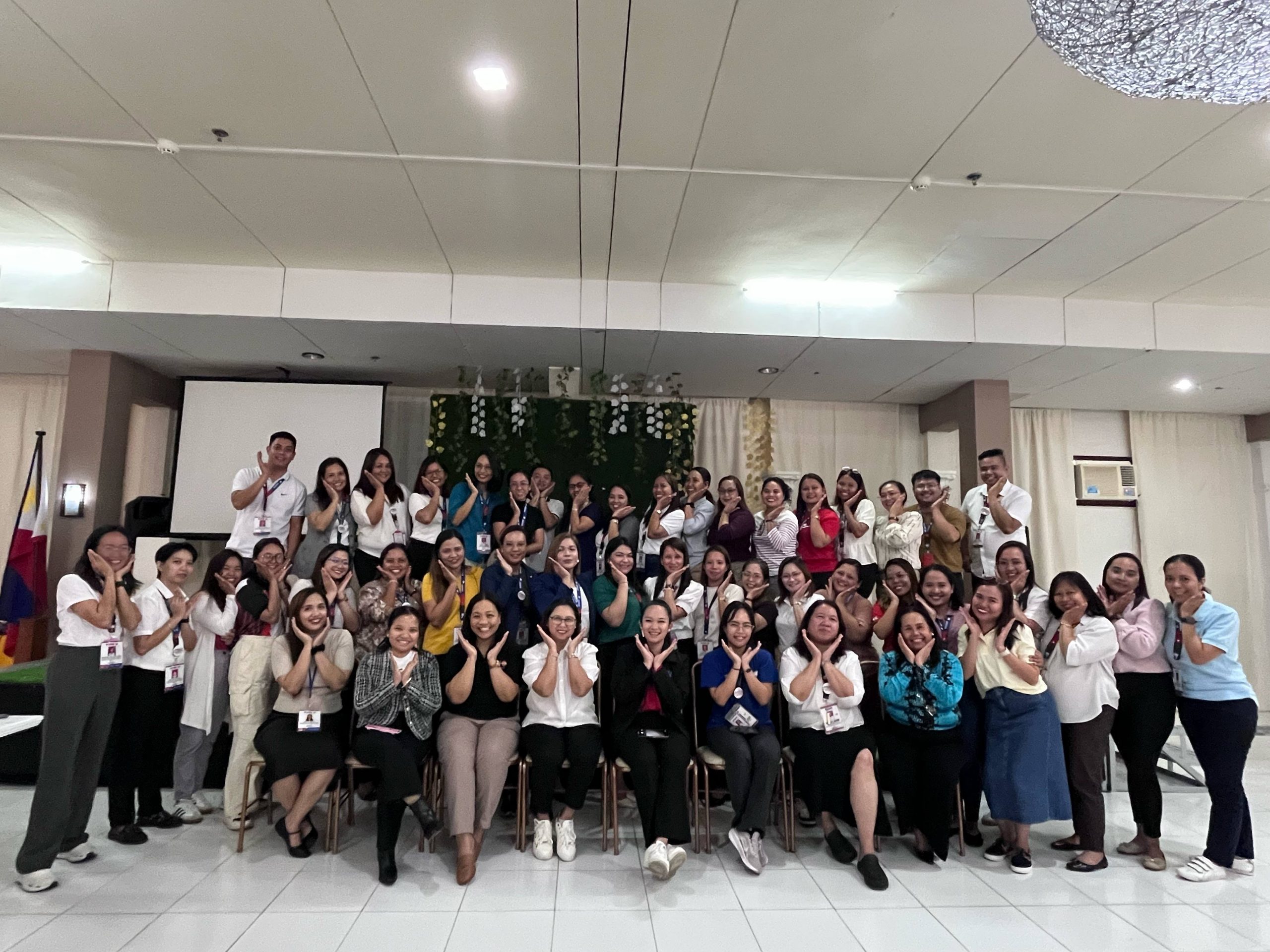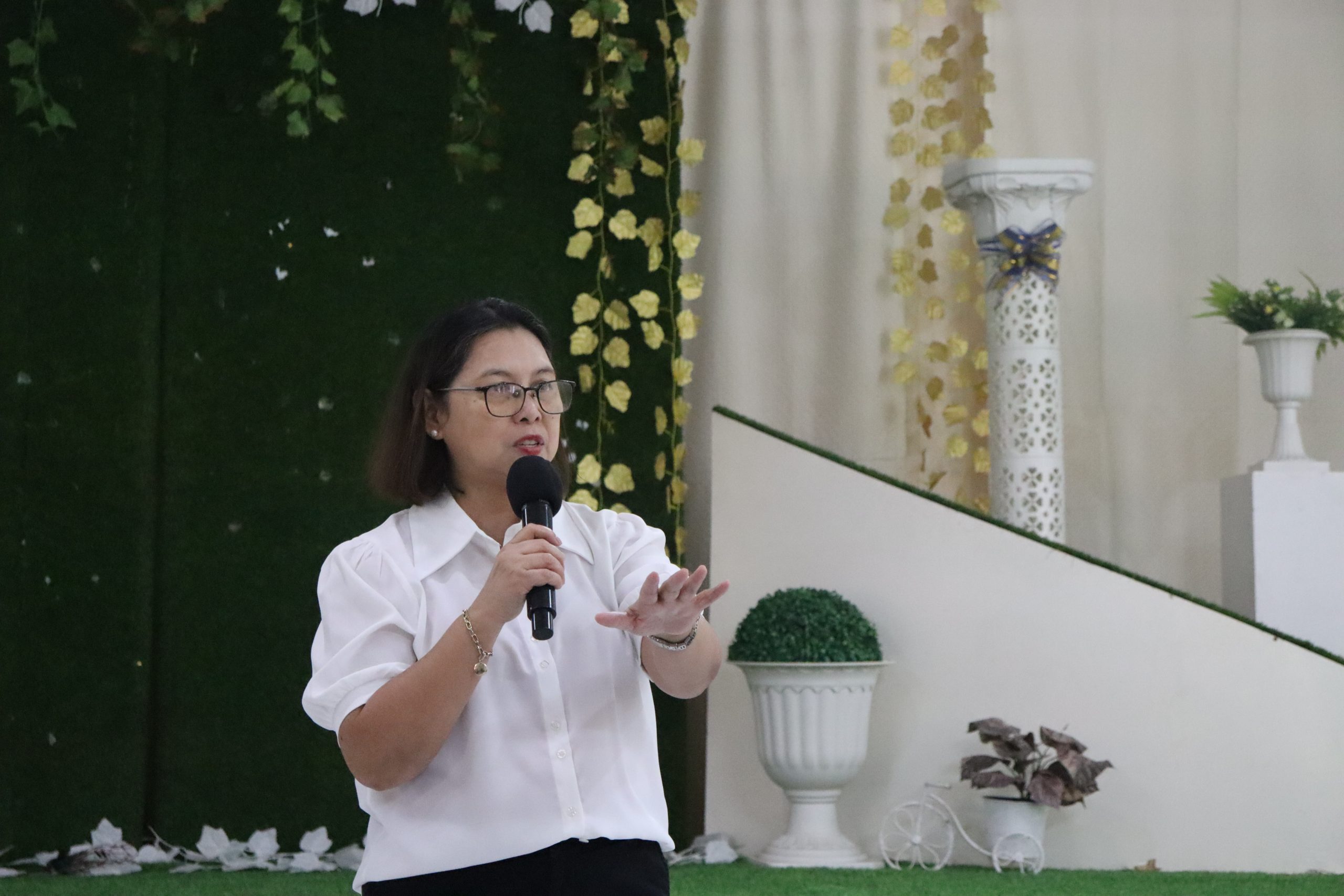
The Department of Social Welfare and Development’s (DSWD) Pantawid Pamilyang Pilipino Program (4Ps) National Program Management Office, in partnership with the United Nations Population Fund (UNFPA), conducts a three-day Coaching and Mentoring Session on the Updated Case Management Handbook for 4Ps Beneficiaries on May 25-28, 2025, at La Edley Resort, Legazpi City
The activity gathers Local Government Unit (LGU) Social Workers, City/Municipal and Provincial Links, Social Welfare Officers, Regional Case Managers, Training Specialists, and GAD Officers to enhance their capacity in managing complex household situations.
With the updated protocols and tools introduced in the revised Case Management Handbook, participants are being equipped to address cases involving child protection, gender-based violence, and high-risk households in a more ethical, effective, and compassionate manner.
The activity gathers Local Government Unit (LGU) Social Workers, City/Municipal and Provincial Links, Social Welfare Officers, Regional Case Managers, Training Specialists, and GAD Officers to enhance their capacity in managing complex household situations.
With the updated protocols and tools introduced in the revised Case Management Handbook, participants are being equipped to address cases involving child protection, gender-based violence, and high-risk households in a more ethical, effective, and compassionate manner.

In her opening message, Director Gemma B. Gabuya, National Program Manager for 4Ps, acknowledged the vital role of UNFPA in supporting the initiative.
“We are truly grateful to UNFPA for their unwavering support and valuable expertise, which helped us finally develop a comprehensive and responsive handbook to guide us in managing the diverse needs of our 4Ps beneficiaries. This is a significant milestone in our work. As we see more and more families successfully graduating from the program, may their stories inspire us to persevere and work even harder. Together, we can continue building pathways out of poverty—one household at a time,” Director Gemma expressed.
4Ps field implementers were oriented on key updates in the handbook, the Kilos Unlad Social Case Management Strategy, and the defined roles of case managers, supervisors, and parent leaders. The sessions also delved into responsible case referral, safe disclosure, and safety planning which are practical tools essential in frontline casework.
The sessions emphasize strengthening convergence and partnerships across various sectors to enhance the support systems available to 4Ps beneficiaries. To address the demanding and often emotionally taxing nature of social work, the organizers also allot dedicated time for discussions on self-care and community care strategies that support the mental health and overall well-being of service providers.
“We are truly grateful to UNFPA for their unwavering support and valuable expertise, which helped us finally develop a comprehensive and responsive handbook to guide us in managing the diverse needs of our 4Ps beneficiaries. This is a significant milestone in our work. As we see more and more families successfully graduating from the program, may their stories inspire us to persevere and work even harder. Together, we can continue building pathways out of poverty—one household at a time,” Director Gemma expressed.
4Ps field implementers were oriented on key updates in the handbook, the Kilos Unlad Social Case Management Strategy, and the defined roles of case managers, supervisors, and parent leaders. The sessions also delved into responsible case referral, safe disclosure, and safety planning which are practical tools essential in frontline casework.
The sessions emphasize strengthening convergence and partnerships across various sectors to enhance the support systems available to 4Ps beneficiaries. To address the demanding and often emotionally taxing nature of social work, the organizers also allot dedicated time for discussions on self-care and community care strategies that support the mental health and overall well-being of service providers.
The program concludes with a forum, where attendees share insights on the usability and applicability of the updated handbook. These observations help ensure that its implementation reflects the realities on the field.
Through this ongoing initiative, DSWD and UNFPA reaffirm their shared commitment to empowering communities, safeguarding vulnerable families, and supporting more 4Ps beneficiaries in their journey out of poverty—with dignity, safety, and hope.
Through this ongoing initiative, DSWD and UNFPA reaffirm their shared commitment to empowering communities, safeguarding vulnerable families, and supporting more 4Ps beneficiaries in their journey out of poverty—with dignity, safety, and hope.
